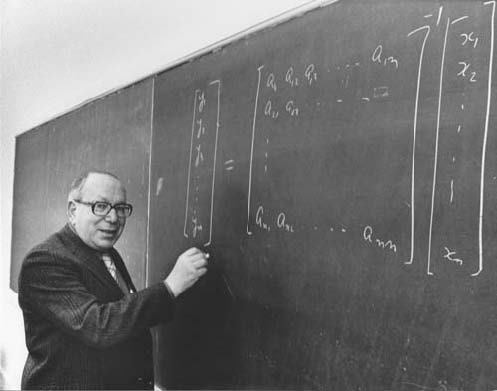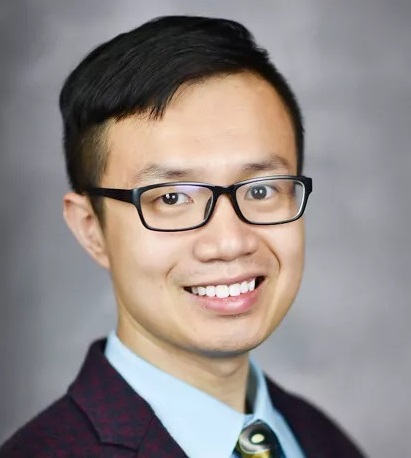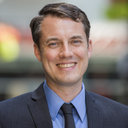Czamanski Dissertation Award
Elisabete Martins
Turkish Section Report - 2014
TRANSED 2015 NEW DEADLINE FOR ABSTRACTS - Lisbon - 14th International Conference on Mobility and Transport for Elderly and Disabled persons
Dear Colleagues,
NEW DATES - Due to many requests, there is a
NEW DEADLINE FOR ABSTRACTS:
15 Nov 2015. Please see the web page
The 14th International Conference on Mobility and Transport for Elderly and Disabled persons will be held in Lisbon, Jul28-31, 2015. This Conference has not been organised in Europe since 1998and we expect to stimulate a high number of participants from all over the world.
The conference is hosted by IST (Técnico) (http://www.ist.eu) and counts with the support of several official entities. The conference premise will be Gulbenkian Foundation (http://www.gulbenkian.pt).
As you can see from the conference web page (http://www.transed2015.com) the program hosts very challenging topics and subtopics and offers the opportunity of engaging in rewarding networking with academics, practitioners and citizens coming from all over the world.
Registrations are open and you can submit your contribution in the TRANSED web site.
We look forward to see you in Lisbon
Best regards
Rosário Macário
Chair of Transed 2015
----------
Conference theme:
“Aim and manage to implement inclusive access for all”
STREAMS:
The conference is organized in two streams of intervention, being:
Science and Technology
Practice and Experience
All conference topics are very open and can be approached from any of the two referred streams. For each topic a number of sub-topics are open from the outset but others can be created. In addition, special sessions can also be envisaged and participants interested in organizing it should contact the Conference Chair for that purpose.
Topic A: Policy approaches for mobility needs and solutions for the ageing and disabled population
The demographic evolution of Society enables to foresee next decades with a substantial increase of ageing population with different degrees of disabilities. In addition, changes in patterns of living and more monoparental families are formed which represent users of temporary restrictions. Cities and regions must reflect in these changes and adjust their policies accordingly so that user needs are satisfied
Subtopics:
A1 - Meeting the needs of people with disabilities in light of changing demographics;
A2- The economic and social implications of living and coping with disabilities;
A3- Cases in policy actions: turning legislation into action.
Topic B: Restricted accessibility as an integrated part of mobility management.
Restricted accessibility or reduced mobility (different parts of the world use different designations) should not be managed as an isolated segment. This approach has led to exclusion of these groups of users despite providing them with increase quality of service. This approach must be changed towards a full integration of restricted accessibility in mobility management enabling citizens with temporary or permanent mobility to benefit from a complete inclusion in society. Mobility and accessibility are instruments for that inclusion.
Subtopics:
B1 - Defining and measuring accessibility;
B2 - Creating accessible urban environments;
B3 – Restricted accessibility in urban transport: success stories;
B4 - Rural accessibility issues;
B5 – Transport contribution for inclusive tourism;
B6 - Ensuring joined approach to planning and delivery for door to door mobility;
B7 - Designing and delivering accessibility for major events (e.g. Olympics etc.).
Topic C - Finding solutions through innovation
Innovation is a wide encompassing concept with an extensive meaning that can go from organization of processes to invention of new technology. Today a major challenge in mobility management is to bridge from mass transit to the capillary needs of the different segments of users. Innovation is required to create new and flexible services that can complement the regular public transport and provide an effective seamless mobility chains for all users, with and without disabilities.
Subtopics
C1 - New technologies and tools;
C2 - Engaging with users for flexible mobility solutions;
C3 - Case studies of innovative approaches to restricted accessibility;
C4 - New impairment realities (e.g. young families, monoparental families, ageing impairment, etc)
The Stan Czamanski Prize
The Stan Czamanski Prize
A dissertation proposal prize in memory of Professor Stan Czamanski, to be awarded biannually, is being established.
Details are currently being worked out. Professor Czamanski’s contributions to regional science are described in the following biographic memorial.
 Stanislaw Czamanski
Stanislaw Czamanski
November 23, 1918 – August 21, 2012
Stanislaw Czamanski passed away in Haifa, Israel on August 21, 2012 at the age of 94. Born in Lodz, Poland, he studied textile engineering at the Federal Institute of Textile Technology and business administration at the College for Foreign Trade, both in Vienna. He also studied the history of philosophy at the Hebrew University in Jerusalem and economics at the University of Geneva, from which he received his master’s (Lic.es Sc. Comm.) degree in 1941.
During World War II Stan served in the Polish Army but spent a considerable part of the war period working in construction management in Palestine. After the war, he held various positions as a planning official and consultant in Lodz. In the post-war period he was also a lecturer at the School of Planning and Statistics at Lodz. In 1958, Stan joined the ATA Textile Co., Ltd. in Haifa, Israel, as an economist and head of the firm’s planning department.
He came to the United States in 1961 to study for his doctoral degree at the University of Pennsylvania after receiving a Harrison Fellowship.
In 1963 Stan received only the third Ph.D. ever awarded in the nascent field of regional science. After completing his dissertation, which elaborated an urban growth model, he stayed on at the University of Pennsylvania for several years as an assistant professor. From 1964 to 1965, he was a consulting economist for the Baltimore Urban Renewal and Housing Agency. In 1966, Stan was a visiting lecturer in economics at the University of Pittsburgh and joined the faculty of the Department of City and Regional Planning (CRP) at Cornell at the rank of Associate Professor. Stan would remain at Cornell until his retirement in 1988, although he held visiting appointments at various times at the University of Puerto Rico, Harvard University, Technion-Israel Institute of Technology, Florida State University, and Tel-Aviv University.
In 1966, Stan organized a Regional Studies Group at the Institute of Public Affairs at Dalhousie University, Halifax, Nova Scotia, which he directed for many years afterward. He would go on to participate in the formulation of numerous urban and regional development plans, serve as the Deputy Director of the United Nations Development Program in Asia, and advise governments in Brazil, Canada, and Iran.
Stan was a productive and innovative researcher publishing many articles and several books.
His text, Regional Science Techniques in Practice, is considered a classic, as is his volume on regional and interregional social accounting. Stan was a founding member of the European Regional Science Association (ERSA) and was the president of the Regional Science Association (now the Regional Science Association International, or RSAI) in 1975. His presidential address on the evolving epistemology of regional science was remarkable for the scope of topics it surveyed and the depth of insight it evinced.
Along with fellow CRP faculty members Barclay Jones and Sid Saltzman, Stan was instrumental in founding the graduate field of regional science at Cornell in 1972. He mastered and then augmented the entire tool box of the field as it stood in the 1970s and 1980s; hence he could and did offer graduate-level instruction on a broad range of subjects.
His courses were intellectual feasts. Although his style of presentation was formal and somewhat dry, the amount of theoretical material he covered and illustrated with empirical case studies was most impressive. Among the topics he treated were urban and regional economic growth theory, input-output and industrial complex analyses, social accounting, regional econometric modeling, demographic projection techniques, graph theory for network analysis, applications of factor analysis and discriminant analysis, and optimization techniques (linear, non-linear, static and dynamic).
Stan lectured regularly at universities on four continents and advised and mentored students from many countries. He took an active interest in the subjects his advisees were studying for their dissertation research and he often borrowed books and papers in order to familiarize himself with the scholarly conversations his advisees were joining.
Reflecting his life experiences, Stan was multilingual with working knowledge of his native Polish, English, Hebrew, Russian, French, German, (Brazilian) Portuguese, Japanese, and Arabic (learned in Palestine during WWII). It would not be uncommon for students waiting outside his office door to hear him conversing with different students in different languages and then on the phone with his wife in still another language.
Stan was a colorful person. His background in modern textile engineering was reflected in his sartorial choices of suits, ties, shirts, socks, and shoes - some with patterns that were redolent of a Kandinsky painting. Stan’s wife, Francezca, was colorful as well and possessed a keen sense of humor. A world-renowned expert on input-output analysis, Stan was once visited at his home by a junior colleague who was met at the door by Francezca. When asked whether or not Stan was home, Francezca replied that he was but that he was busy with his ‘puts.’
One of the last professional meetings Stan attended was the ERSA congress in Vienna in August of 1998. He greatly enjoyed revisiting the boarding house in which he had roomed as a student and recounted how the housekeeper there knew all the students’ course schedules and would rouse them, ply them with coffee and rolls, and get them off to their respective classes on time.
Stan contributed much to the intellectual and social life of the Department of City and Regional Planning and is remembered with much fondness. Stan was predeceased by his wife but is survived by his son, Daniel, who is a Professor on the Faculty of Architecture and Town Planning at Technion-Israel Institute of Technology. In his memory the Stan Czamanski Prize for Outstanding Scholarship by a Young Scholar is awarded annually by the Israeli section of the Regional RSAI.
The Czamanski Prize for the best Ph.D. dissertation proposal in Regional Science is being established by the Regional Science Association International with a gift from Stan’s son Daniel.
Kieran Donaghy and Sid Saltzman, Cornell University
Czamanski Dissertation Award
2025 Czamanski Dissertation Award
Call for Applications
Deadline: March 31, 2025 (contact: This email address is being protected from spambots. You need JavaScript enabled to view it.)
The Czamanski Dissertation Award is awarded by the Regional Science Association International in memory of Professor Stan Czamanski, an early recipient of a Ph.D. in regional science (1963), a member of the University of Pennsylvania regional science faculty (1963-1966), a member of the regional science faculty of Cornell University (1966-1988), and a past-president of the Regional Science Association (1975-1976).
The annual prize is awarded to author of the best Ph.D. dissertation proposal judged to exemplify the philosophy and approach of Professor Czamanski, as described below.
- The US$1,000 prize is awarded to the student and a plaque to the student’s advisor.
- The selection will be made by a panel of three persons: a senior and long-standing member of the regional science community, a representative of the field of Regional Science at Cornell and a member of the RSAI Council.
- Students writing dissertations on problems in regional science from around the world are invited to enter the competition, in the spirit of Stan’s all-embracing philosophy.
To be eligible, the dissertation proposal must have been defended and approved during the past 12 months.
Each applicant will submit the following:
- A statement in six pages or less that clearly sets out the research question(s) and issues to be addressed, approach to be used, and product expected from the dissertation research. The six-page limit is exclusive of references, tables and figures. This text and references should be in 12 point or larger font and single-spaced. In addition, a summary (maximum one page) describing the intellectual merit of the proposed research and why the proposed approach may be regarded as implementing Professor Czamanski’s philosophy and approach, as described below.
- A curriculum vita of no more than two pages.
- Copies of the candidate’s transcripts for all graduate study. Unofficial copies are acceptable.
- A separate, confidential letter from the dissertation supervisor assessing the quality and significance of the proposed dissertation research.
Philosophy and Research Approach of Professor Stan Czamanski
In his Introduction to Regional Science (Prentice-Hall, 1975, p. 2), Walter Isard wrote:
“In brief, regional science as a discipline concerns the careful and patient study of social problems with regional or spatial dimensions, employing diverse combinations of analytical and empirical research.”
Professor Czamanski’s research exemplified the analysis of social and economic problems with regional and spatial dimensions. In doing so, he chose judiciously the right combination of analytical and empirical research methods from his tool box to address the specific issue at hand.
Dissertation proposals submitted for the Czamanski Dissertation Award will be judged with regard to how the student proposes to bring an appropriate combination of analytical and empirical methods to bear on a social and economic problem with spatial or regional dimensions, and how this combination of methods is expected to deliver greater insights into the problem in question.
Winners
2020 |
2019 |
||||||||||||
 |
Sicheng Wang is the 2020 Czamanski Dissertation Award for his dissertation entitled "Travel behavior of ridesourcing: A data-driven analysis". He was supervised by Robert B. Noland from Edward J. Bloustein School of Planning and Public Policy |
|
Haotian Zhong is the 2019 Czamanski Dissertation Award for his dissertation entitled "Autonomous vehicles and urban form". He was supervised by Wei Li from Texas A&M University. | ||||||||||
2018 |
2015 |
||||||||||||
 |
Viola von Berlepsch is the winner of the 2018 Czamanski Dissertation Award for her dissertation entitled “The long-term economic impact of migration and its significance for US prosperity”. She was supervised by Prof. Andrés Rodríguez-Pose and Prof. Neil Lee. |  |
The proposal of Steven R. Gehrke (Portland State University, Portland, Oregon, USA) best represented the approach of Professor Czamanski. Gehrke’s proposal was entitled “Active Travel Behavior and Spatial-temporalLand Use Mixing.” |
COST Action TU1001 on Public Private Partnerships in Transport: Final Conference 8-9 October 2014
Dear Ms,
Dear Sir,
COST Action TU1001 on Public Private Partnerships in Transport: Trends & Theory (P3T3) will share and discuss findings and activities with the academic community, as well as policy-makers and practitioners in its final conference bringing together all interested parties on 8 and 9 October 2014 in Brussels. The action was initiated in January 2011 to address the theoretical basis for PPPs in the transport sector considering (i) the decision-making process; (ii) the assessment and monitoring of PPP performance; and (iii) the implications of the external environment with respect to efficiency. The national and modal perspective was also addressed, thus forming a matrix for the consolidation of knowledge. There are no attendance fees. View the final program online. Register here before 1 October!
Department of Transport and Regional Economics
Faculty of Applied Economics
University of Antwerp
City Campus (CST)
Prinsstraat 13 – 2000 Antwerp
This email address is being protected from spambots. You need JavaScript enabled to view it.
P +32 3 265 40 44
News Letter - Scienpress Ltd (September 2014)
|
|||
|
|||
|
Nomination process for RSAI Vice-President (President-Elect)
Dear RSAI Members
Please read the following important information regarding the governance of RSAI and provide feedback as you see fit. This is a call for nominations for the position of Vice-President and President-Elect of RSAI.
1) RSAI Bylaw 5 describes the selection of the Vice-President of RSAI as follows:
a. The RSAI President shall be elected by the Council for a two-year-term and confirmed by a vote of the entire active membership of the Association. To canvass suitable candidates for nomination, the Council establishes a “Nomination Committee” comprising the RSAI President, the RSAI Immediate Past-President, three members of RSAI Council (one each from among the council members who are appointees of the three superregional organizations), and two members of the Long Range Planning Committee (LRPC) recommended by the LRPC itself.
b. Criteria of the nominees. The nominees should satisfy the following criteria: a) financial resources sufficient to cover travel costs to perform RSAI duties; b) support from candidate’s institution including release of duties to enable President to travel as needed to conduct RSAI business; c) RSAI Council experience (Council member experience) and/or other service to the regional science community (e.g., superregional and/or other sections, editor of one of the regional science journals, etc.).
c. The President Elect nomination committee shall be formed no later than the first year of the two-year term of the President and make a recommendation to Council at the second Council meeting of this same year. Upon receiving this recommendation, Council will select a nominee, who shall be confirmed by a vote of RSAI members no later than the end of the calendar year. The President-Elect and Vice-President shall start his/her appointment at the start of the next calendar year (i.e. the second year of the current President’s term).
2) Duties and responsibilities of the RSAI President and Vice-President are defined as follows in the RSAI Constitution:
a. President. The President of RSAI represents the Association and is responsible for its business. The President is a regular, voting, and working member of the Council. The presidency is not a ceremonial position. The President shall serve a two-year term of office, succeeding to the position immediately upon completion of a term of office as Vice-President and President-Elect. The President shall provide active and aggressive leadership in the areas of program and policy development. During the initial year of implementation of this Constitution, the existing President of the Regional Science Association shall assume the duties of President of RSAI and shall subsequently succeed to the position of Immediate Past-President, as specified in paragraph c below.
b. Vice-President and President-Elect. The President-Elect of RSAI acts as the Vice President. He/she is a regular, voting, and working member of the Council. The President-Elect shall serve a one-year term of office, which shall be followed immediately by a two-year term as President. The Vice-President and President-Elect shall act for the President in the President's absence.
The President is expected to take a leadership role in establishing new sections of RSAI around the world and nurturing regional science scholarship and institutions around the globe in consultation with its constituting associations and organizations. The candidate must therefore be prepared to travel extensively around the world.
3) A Nomination Committee was formed by RSAI Council at the Saint Petersburg, Russia meeting (August 2014). This Committee is composed of Jean-Claude Thill (Chair), Yoshiro Higano, Roberta Capello, Bob Stimson, Jouke Van Dijk, Yuzuru Miyata, and Eduardo Haddad. The Committee is now soliciting nominations for the position of Vice-President and President-Elect from all current RSAI members. Nominations will be accepted until October 5, 2014;
4) From the list of nominees suggested by any RSAI members, the Nominations Committee will make a recommendation to RSAI Council at its Washington DC meetings on November 14, 2014.
5) The President-Elect will serve as Vice-President of RSAI in 2016, and will become President of RSAI on January 1, 2017 for a two-year term.
6) It has been a tradition of RSAI to rotate the Presidency between the three super-regions, namely the Pacific, the Americas, and Europe. Continuing this tradition, we will be looking to appoint a regional scientist affiliated with the PRSCO and be based in one of the countries of the Pacific Rim to succeed Andres Rodriguez-Pose, United Kingdom.
7) Those who want to nominate a candidate should do so by sending an email message to Jean-Claude Thill, RSAI President and Chair of the Nomination Committee at This email address is being protected from spambots. You need JavaScript enabled to view it. before October 5, 2014. The nomination should consist of a single Word document or PDF including a brief justification and statement of the nominee’s credentials and qualifications, the RSAI section and contact information of the nominee. Self-nominations will not be accepted. Nomination emails should have “Nomination to RSAI VP” in the subject line.
AESOP Newsletter 7/2014 - September 08
AESOP News Autumn 2014
Published at: 7 September 2014
Francesco Lo Piccolo started his Presidency (2014-2016)
Francesco Lo Piccolo (University of Palermo) started his Presidency after AESOP Congress in Utrecht in July 2014. He replaced Gert de Roo (University of Groningen) who will remain AESOP Vice-President till the end of the AESOP Congress in 2015 in Prague. After July 2015 Gert de Roo will remain AESOP Official responsible for selected AESOP projects.
In his introductory speech Francesco Lo Piccolo revealed main slogan of his Presidency: Values for Our Future.
He stressed that when we look outside AESOP, cooperation and collective work are often not the priority. In times of crises, there is the risk of becoming ‘selfish’.
This is why the challenge is to maintain and improve the very nature of AESOP: which is embedded incooperation and solidarity, together with intellectual freedom, passion, ethics.
Francesco Lo Piccolo imagined the future:
1. The future of AESOP: new generations of academics
2. The future of our schools: diversity and plurality.
3. The future of our research: achieving good standards, together.
4. The future of our discipline: professional recognition, a hard task today
5. The future of our European identity
Paulo Pinho elected as AESOP Secretary General 2015-2019
Paulo Pinho (University of Porto) will replace Izabela Mironowicz (Wrocław University of Technology) as AESOP Secretary General after the AESOP Congress in 2015 in Prague. Until then he will be working for AESOP as Vice-Secretary General preparing himself for his terms of office. After July 2015 Izabela Mironowicz will remain AESOP Official responsible for selected AESOP projects.
AESOP HEADS OF SCHOOL MEETING 2015 WILL BE HOSTED BY TECHNICAL UNIVERSITY OF MADRID
Technical University of Madrid (UPM), School of Architecture, Department of Urban and Regional Planning (DUyOT) will be hosting AESOP Heads of Schools Meeting in 2015. The provisional dates are 12-15 March 2015. The final confirmation of the dates will be shortly available on AESOP website.
AESOP community would like to express the word of gratitude to Technical University of Madrid School of Architecture, Department of Urban and Regional Planning (DUyOT) and Aristotle University of Thessaloniki, Faculty of Engineering, School of Spatial Planning And Development for their outstanding applications for hosting AESOP Heads of School Meeting 2015.
New AESOP members
AESOP is delighted to welcome three new members:
Nürtingen-Geislingen University Faculty for Landscape Architecture, Environmental and Urban Planning, GERMANY (Full Member);
International University of Catalonia Department of Urbanism and Spatial Planing, SPAIN (Associate Member);
University of Applied Sciences Rotterdam, NETHERLANDS (Associate Member,).
TRANSED 2015, Lisbon - 14th International Conference on Mobility and Transport for Elderly and Disabled persons - Open Registration
Dear Colleagues,
DEADLINE FOR ABSTRACT 15th September 2014
The 14th International Conference on Mobility and Transport for Elderly and Disabled persons will be held in Lisbon, Jul28-31, 2015. This Conference has not been organised in Europe since 1998and we expect to stimulate a high number of participants from all over the world.
The conference is hosted by IST (Técnico) (http://www.ist.eu) and counts with the support of several official entities. The conference premise will be Gulbenkian Foundation (http://www.gulbenkian.pt).
As you can see from the conference web page (http://www.transed2015.com) the program hosts very challenging topics and subtopics and offers the opportunity of engaging in rewarding networking with academics, practitioners and citizens coming from all over the world.
Registrations are open and you can submit your contribution in the TRANSED web site.
We look forward to see you in Lisbon
Best regards
Rosário Macário
Chair of Transed 2015
----------
Conference theme:
“Aim and manage to implement inclusive access for all”
STREAMS:
The conference is organized in two streams of intervention, being:
Science and Technology
Practice and Experience
All conference topics are very open and can be approached from any of the two referred streams. For each topic a number of sub-topics are open from the outset but others can be created. In addition, special sessions can also be envisaged and participants interested in organizing it should contact the Conference Chair for that purpose.
Topic A: Policy approaches for mobility needs and solutions for the ageing and disabled population
The demographic evolution of Society enables to foresee next decades with a substantial increase of ageing population with different degrees of disabilities. In addition, changes in patterns of living and more monoparental families are formed which represent users of temporary restrictions. Cities and regions must reflect in these changes and adjust their policies accordingly so that user needs are satisfied
Subtopics:
A1 - Meeting the needs of people with disabilities in light of changing demographics;
A2- The economic and social implications of living and coping with disabilities;
A3- Cases in policy actions: turning legislation into action.
Topic B: Restricted accessibility as an integrated part of mobility management.
Restricted accessibility or reduced mobility (different parts of the world use different designations) should not be managed as an isolated segment. This approach has led to exclusion of these groups of users despite providing them with increase quality of service. This approach must be changed towards a full integration of restricted accessibility in mobility management enabling citizens with temporary or permanent mobility to benefit from a complete inclusion in society. Mobility and accessibility are instruments for that inclusion.
Subtopics:
B1 - Defining and measuring accessibility;
B2 - Creating accessible urban environments;
B3 – Restricted accessibility in urban transport: success stories;
B4 - Rural accessibility issues;
B5 – Transport contribution for inclusive tourism;
B6 - Ensuring joined approach to planning and delivery for door to door mobility;
B7 - Designing and delivering accessibility for major events (e.g. Olympics etc.).
Topic C - Finding solutions through innovation
Innovation is a wide encompassing concept with an extensive meaning that can go from organization of processes to invention of new technology. Today a major challenge in mobility management is to bridge from mass transit to the capillary needs of the different segments of users. Innovation is required to create new and flexible services that can complement the regular public transport and provide an effective seamless mobility chains for all users, with and without disabilities.
Subtopics
C1 - New technologies and tools;
C2 - Engaging with users for flexible mobility solutions;
C3 - Case studies of innovative approaches to restricted accessibility;
C4 - New impairment realities (e.g. young families, monoparental families, ageing impairment, etc)
Boosting Academic Entrepreneurship, 10 - 12 December 2014 Enschede, the Netherlands
Boosting Academic Entrepreneurship
10 - 12 December 2014 Enschede, the Netherlands
The Technopolicy Network is proud to announce its 12th annual academic entrepreneurship conference and awards in Enschede, the Netherlands. This conference will be organized in collaboration with Kennispark Twente.
Since 2002 The Technopolicy Network has organized its annual conference on science based incubation in many countries. This year’s theme is ‘Joint regional and national strategies for universities, incubators and business partners’. RSAI is one of the partners for this event.
The conference will be held in the innovative region of Twente which houses the most entrepreneurial university of the Netherlands, the University of Twente, where VentureLab International, the 2013 winner in the award category “fastest growth”, is located. The University of Twente embedded regional development in the university strategy and offers the right environment to extend the subject of the annual science based incubation conference into a broader focus on “Boosting academic entrepreneurship”. The conference will be chaired by Frans van Vught, innovation advisor to the President of the European Commission.
Check our website for more information.
About Us
The Regional Science Association International (RSAI), founded in 1954, is an international community of scholars interested in the regional impacts of national or global processes of economic and social change.








